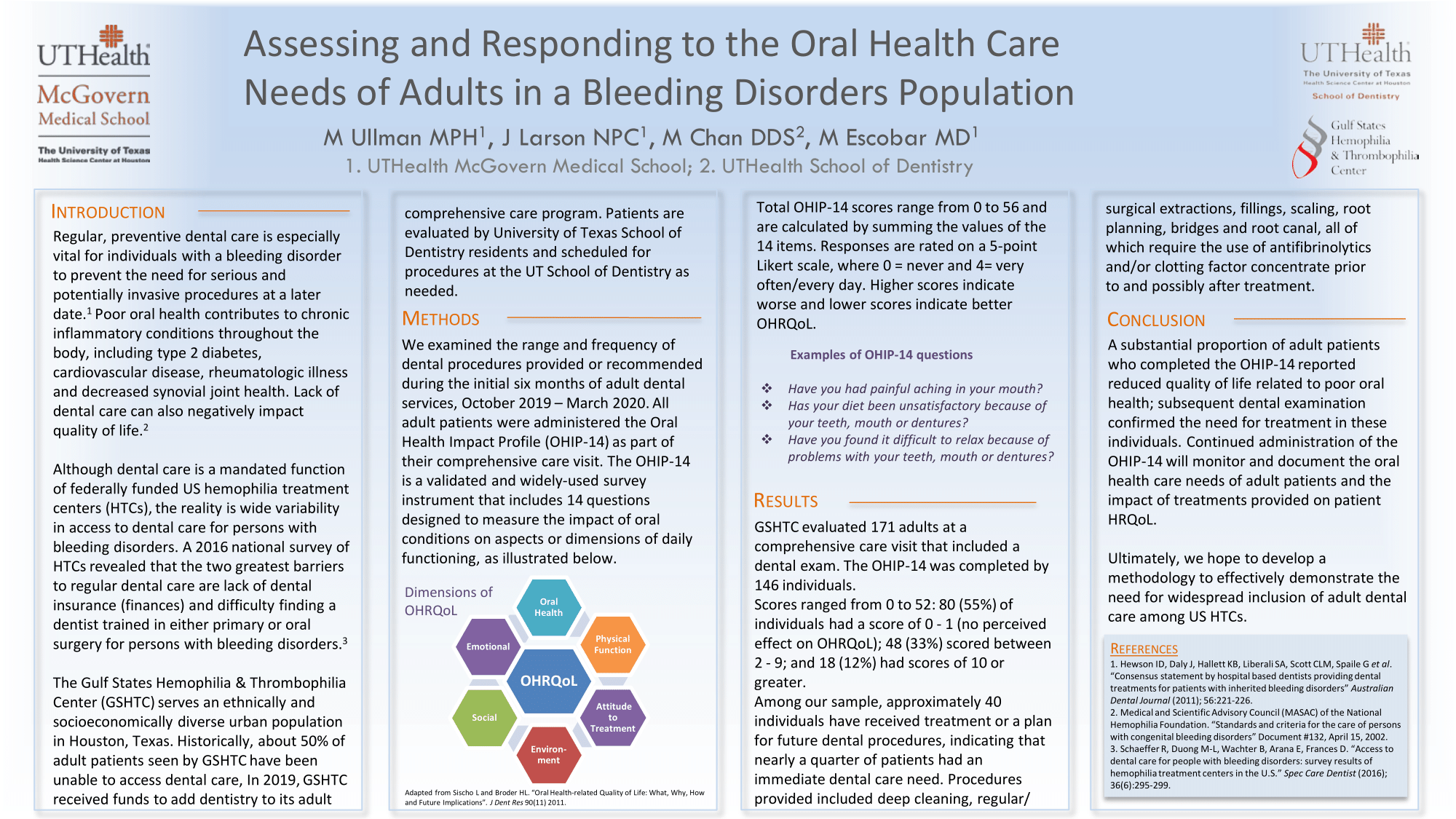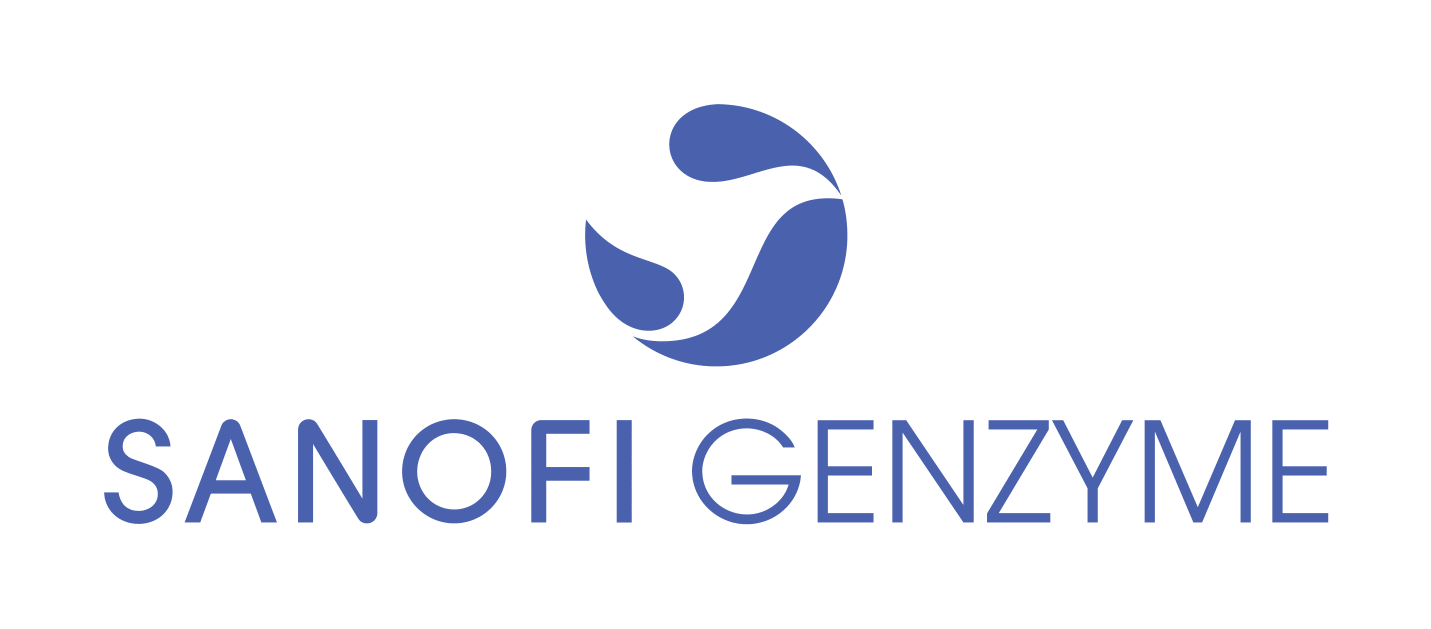National Hemophilia Foundation (NHF) - Posters
Assessing and Responding to the Oral Health Care Needs of Adults in a Bleeding Disorders Population |
|
|
|

|
Introduction/Background:
Maintenance of oral health is frequently challenging for US adults with a bleeding disorder. Underlying causes are due mainly to (1) lack of dental insurance and (2) lack of knowledge among dentists about how to perform safely either primary dental care or oral surgery. Without regular care, patients are at risk for advanced dental disease, which is associated with chronic inflammatory conditions, including type 2 diabetes and cardiovascular disease. Research indicates that controlling periodontal disease reduces inflammatory markers throughout the body, including synovial joints.
Materials and Methods:
The Gulf States Hemophilia and Thrombophilia Center (GSHTC) in Houston, Texas serves a diverse urban population; historically, about 50% of adult patients receive no dental care. In October 2019, GSHTC added adult dental exams to comprehensive care services. Patients are evaluated by University of Texas School of Dentistry residents and scheduled for routine or specialized dental procedures as needed. To assess the scope of dental needs in the GSHTC patient population, we examined the range of procedures recommended and the proportion of patients reporting oral health care problems. We report here preliminary results from the initial six months of adult dental services, October 2019 March 2020.
Results:
In this period, 171 adults with a bleeding disorder received dental evaluations, and 146 completed the Oral Health Impact Profile (OHIP-14). The OHIP-14 is a validated survey instrument consisting of 14 questions measuring seven dimensions of oral health: functional limitation, physical pain, psychological discomfort, physical disability, psychological disability, social disability and handicap. Responses are rated on a 5-point Likert scale: 0=never, 1=hardly ever; 2=occasionally, 3=fairly often; 4=very often/every day. Total OHIP-14 scores can range from 0 to 56 and are calculated by summing the values for the 14 items. Higher scores indicate worse and lower scores indicate better health-related quality of life (HRQoL). Scores ranges from 0-52; 80 (55%) individuals had a score of 0-1 (no oral health problems); 48 (33%) scored between 2-9, and 18 (12%) had scores of 10 or greater.Since October 2019, nearly all adult patients seen in clinic have received a dental evaluation;approximately 40 patients in need of dental care have received treatment or a treatment plan. Procedures include deep cleaning, regular/surgical extractions, fillings, scaling, root planing, crowns, bridges and root canal, all of which require infusion of factor concentrate prior to treatment.
Conclusion:
A substantial proportion of patients who completed the OHIP-14 reported reduced HRQoL related to poor oral health; subsequent dental examination confirmed the urgent need for treatment in these individuals. Continued administration of the OHIP-14 will monitor the impact of dental treatment on patient HRQoL. Ultimately, we hope to provide evidence of the need for widespread inclusion of adult dental care among US Hemophilia Treatment Centers.



